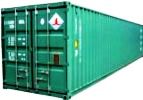Mubychem Group, established in 1976, is the pioneer manufacturer of Sodium Chloride, Pharmaceutical, Fragrance & Flavor chemicals in India. Mubychem Group has several manufacturing facilities spread across Gujarat and Mumbai India and world wide contacts and toll manufacturers. We are exporting globally to countries like USA, Europe, UAE, South Africa, Tanzania, Kenya, Egypt, Nigeria, Uganda, Turkey, Mexico, Brazil, Chile, Argentina, Dubai, Indonesia, Spain etc. |
|
The participating units have one or more accreditations like FDA - GMP approval; ISO-9001 Certified; "REACH" registered; ISO-22000; Kosher Certified; Halal Certified; HACCP. We offer Pure & IP BP USP FCC Food Grade ACS AR Analytical Reagent Grades of Chemicals |
|





Sodium Chloride IP BP Ph Eur USP ACS Reagent Grade Manufacturers
Sodium Chloride IP BP USP FCC ACS AR Manufacturers
INDIAN PHARMACOPOEIA
SODIUM CHLORIDE IP (NaCl)
MOLECULAR WEIGHT – 58.44
Particulars | NaCl I.P. Grade |
Dry Basis Assay | 99.0% - 100.5% |
Description | White, crystalline powder. |
Solubility | Freely soluble in water; practically insoluble in ethanol. |
Acidity or alkalinity | Passes Test |
Clarity and Colour of Solution | Clear & colourless solution (10% w/w). |
Arsenic | 1 ppm max. |
Barium | Passes Test |
Bromide | 0.1% max. |
Calcium & Magnesium as Ca | 50 ppm max. |
Ferro cyanide | Passes Test |
Heavy Metals | 5 ppm max. |
Iodide | Passes Test |
Iron | 20 ppm max. |
Loss on Drying | 1% max. |
Potassium | 0.1% max. |
Packing | In 50 Kgs. HDPE bags with double HMHDP liners |
We offer Sodium Chloride IP, BP, USP or Extra Pure material made at our FDA approved world class plant Anmol Chemicals an ISO-9001-2008 Certified Company using standard GMP techniques
General Information
Sodium chloride, also known as common salt, table salt, or halite, is an ionic compound with the formula NaCl. Apart from the familiar uses of salt in cooking, salt is used in many manufacturing applications.
Biological uses
Many microorganisms cannot live in an overly salty environment: water is drawn out of their cells by osmosis. For this reason salt is used to preserve some foods, such as smoked bacon or fish. It is also used in tooth paste.
Bacteriostatic NaCl - Clinical Pharmacology
The salt in water dissociates to provide sodium (Na+) and chloride (Cl−) ions. These ions are normal constituents of the body fluids (principally extra cellular) and are essential for maintaining electrolyte balance.
The small volume of fluid and amount provided by Bacteriostatic 0.9% NaCl Injection, USP, when used only as a vehicle for parenteral injection of drugs, is unlikely to exert a significant effect on fluid and electrolyte balance except possibly in neonates and very small infants.
Indications and Usage for Bacteriostatic NaCl
This parenteral preparation is indicated only for diluting or dissolving drugs for intravenous, intramuscular or subcutaneous injection, according to instructions of the manufacturer of the drug to be administered.
Contraindications
Due to the potential toxicity of benzyl alcohol in neonates, solutions containing benzyl alcohol must not be used in this patient population.
Parenteral preparations with benzyl alcohol should not be used for fluid or NaCl replacement.
Parenteral preparations containing benzyl alcohol should not be used in epidural or spinal anesthetic procedures.
Warnings
Benzyl alcohol, a preservative in Bacteriostatic NaCl Injection, USP has been associated with toxicity in neonates. Data are unavailable on the toxicity of other preservatives in this age group. Where NaCl solution is required for preparing or diluting medications for use in neonates, only preservative-free NaCl Injection should be used.
Precautions
Consult the manufacturer’s instructions for choice of vehicle, appropriate dilution or volume for dissolving the drugs to be injected, including the route and rate of injection.
Inspect reconstituted (diluted or dissolved) drugs for clarity (if soluble) and freedom from unexpected precipitation or discoloration prior to administration.
Pregnancy Category C
Animal reproduction studies have not been conducted with Bacteriostatic 0.9% NaCl Injection, USP. It is also not known whether Bacteriostatic 0.9% NaCl Injection containing additives can cause fetal harm when administered to a pregnant woman or can affect reproduction capacity. Bacteriostatic 0.9% NaCl Injection containing additives should be given to a pregnant woman only if clearly needed.
Pediatric Use
The safety and effectiveness in the pediatric population are based on the similarity of the clinical conditions of the pediatric and adult populations. However, due to potential toxicity of benzyl alcohol in neonates, solutions containing benzyl alcohol are contraindicated in this patient population.
Drug Interactions
Some drugs for injection may be incompatible in a given vehicle, or when combined in the same vehicle or in a vehicle containing benzyl alcohol. Consult with pharmacist, if available.
Use aseptic technique for single or multiple entry and withdrawal from all containers.
When diluting or dissolving drugs, mix thoroughly and use promptly.
Do not store reconstituted solutions of drugs for injection unless otherwise directed by the manufacturer of the solute.
Adverse Reactions
Reactions which may occur because of this solution, added drugs or the technique of reconstitution or administration include febrile response, local tenderness, abscess, tissue necrosis or infection at the site of injection, venous thrombosis or phlebitis extending from the site of injection and extravasations.
If an adverse reaction does occur, discontinue the infusion, evaluate the patient, institute appropriate countermeasures, and if possible, retrieve and save the remainder of the unused vehicle for examination.
Although adverse reactions to intravenous, intramuscular or subcutaneous injection of 0.9% benzyl alcohol are not known to occur in man, experimental studies of small volume parenteral preparations containing 0.9% benzyl alcohol in several species of animals have indicated that an estimated intravenous dose up to 30 mL may be safely given to an adult without toxic effects. Administration of an estimated 9 mL to a 6 kg neonate or infant is potentially capable of producing blood pressure changes.
Over dosage
Use only as a diluent or solvent. This parenteral preparation is unlikely to pose a threat of NaCl or fluid overload except possibly in neonates and very small infants. In the event these should occur, re-evaluate the patient and institute appropriate corrective measures.
Bacteriostatic Sodium Chloride Dosage and Administration
The volume of the preparation to be used for diluting or dissolving any drug for injection, is dependent on the vehicle concentration, dose and route of administration as recommended by the manufacturer.
Parenteral drug products should be inspected visually for particulate matter and discoloration prior to administration, whenever solution and container permit.
Sodium Chloride IP BP USP manufacturers at:
MUBYCHEM GROUP
CHINCHBUNDER, MUMBAI 400009, INDIA
TEL: (OFFICE) 91-22-23774610, 91-22- 23723564. 91-22-23728264
e-mail: anmol@pcmenergy.com

Copyright and Usual Disclaimer is Applicable.
Global or International Sodium Chloride Suppliers, Exporters, Importers, Manufacturers
If I give you “My Word” Nobody can undo it.
If I sign an “Agreement” my Lawyer will undo it
Perfection is made up of small thing but it is not small.
25-Jun-2025
